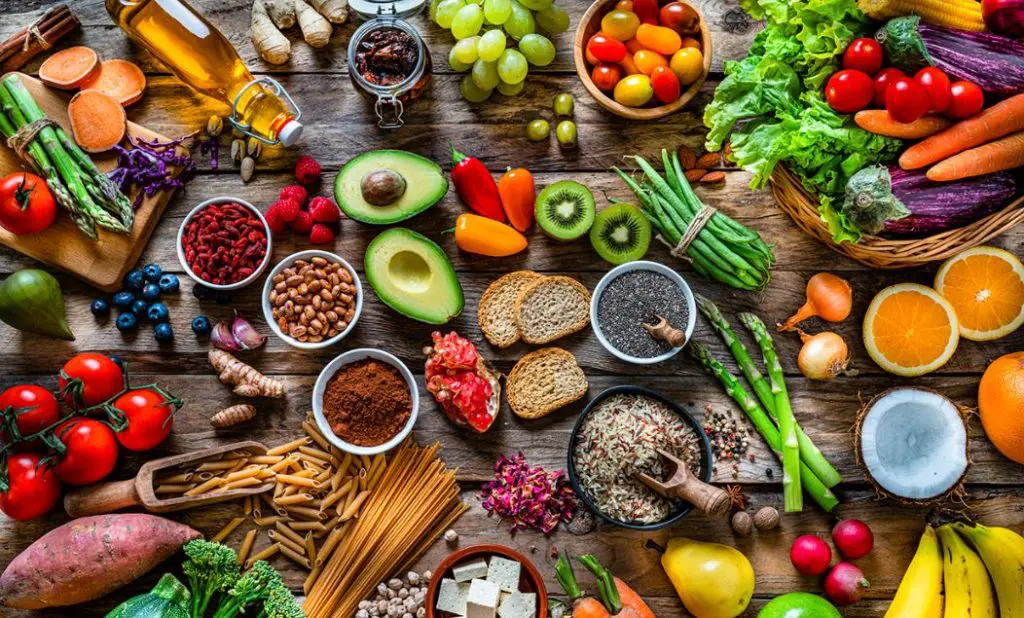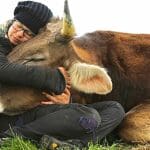Embarking on a vegan lifestyle can be an exciting and rewarding journey, not only for your health but also for the environment and animal welfare. Whether you are transitioning to a plant-based diet or just exploring veganism, having a well-rounded shopping list can make all the difference in making the transition smooth and enjoyable. This guide will walk you through essential components of a vegan shopping list, focusing on what you need to know, what you should avoid, and how to make your grocery trips as easy as possible.
What Do Vegans Not Eat?
Before diving into what you should buy, it’s helpful to understand what vegans avoid. Vegans exclude all animal-derived products from their diets, including:
- Meat: All types, including beef, poultry, fish, and pork.
- Dairy: Milk, cheese, butter, cream, yogurt, and any products made from animal milk.
- Eggs: From chickens, ducks, or other animals.
- Honey: Since it’s produced by bees, vegans also avoid honey.
- Gelatin: Made from animal bones and often used in candies and desserts.
- Non-vegan additives: Some food additives, such as carmine (derived from insects) and certain colorings, may be animal-derived.
Additionally, vegans avoid animal-derived ingredients in cosmetics, clothing, and household items, focusing on cruelty-free alternatives.

How To Build A Vegan Shopping List
Building a vegan shopping list starts with understanding the fundamentals of a balanced plant-based diet. You’ll want to focus on purchasing a variety of nutrient-rich foods to ensure you meet your daily requirements. Start with whole foods, such as vegetables, fruits, grains, legumes, nuts, and seeds, and then explore plant-based substitutes for animal products.
Here’s a breakdown of each section of your vegan shopping list:
- Fruits and Vegetables: These will form the bulk of your meals and are full of vitamins, minerals, and antioxidants.
- Grains: Rice, oats, quinoa, and whole wheat pasta are great staples.
- Legumes: Beans, lentils, peas, and chickpeas are fantastic sources of protein and fiber.
- Nuts and Seeds: Almonds, walnuts, chia seeds, flaxseeds, and sunflower seeds are great for healthy fats and protein.
- Plant-based Dairy Alternatives: Look for plant-based milk (almond, oat, soy), vegan cheeses, and dairy-free yogurts.
- Vegan Meat Alternatives: Products like tofu, tempeh, seitan, and beyond burgers can be used in place of meat.
- Spices and Seasonings: Herbs, spices, nutritional yeast, and plant-based broths will help add flavor and variety to your meals.
Vegan Carbs
Carbohydrates are an essential part of a balanced diet, and many plant-based foods are excellent sources of complex carbs. They provide long-lasting energy, fiber, and vital nutrients. Key vegan carbs to add to your shopping list include:
- Whole Grains: Brown rice, quinoa, oats, barley, bulgur, and farro.
- Starchy Vegetables: Sweet potatoes, potatoes, butternut squash, and corn.
- Legumes: Beans, lentils, peas, and chickpeas, which provide both carbs and protein.
- Whole Wheat Pasta: Opt for whole wheat or other whole grain pasta options instead of refined varieties.
Vegan Proteins
Protein is an essential nutrient that helps repair tissues, build muscle, and maintain a healthy immune system. For vegans, there are plenty of plant-based sources of protein:

- Tofu and Tempeh: Soy products that are rich in protein and can be used in a variety of dishes.
- Seitan: Made from wheat gluten, seitan is a protein-packed meat substitute.
- Legumes: Beans, lentils, and chickpeas are all great protein sources.
- Nuts and Seeds: Almonds, peanuts, chia seeds, hemp seeds, and pumpkin seeds are excellent protein sources.
- Plant-based Protein Powders: Pea protein, hemp protein, and brown rice protein can be great additions to smoothies or snacks.
Vegan Healthy Fats
Healthy fats are crucial for brain function, cell structure, and overall health. Some of the best vegan sources of healthy fats include:

- Avocados: Rich in monounsaturated fats and fiber.
- Nuts: Almonds, cashews, walnuts, and pistachios.
- Seeds: Flaxseeds, chia seeds, hemp seeds, and sunflower seeds.
- Olive Oil and Coconut Oil: Great for cooking and dressings.
- Nut Butters: Peanut butter, almond butter, and cashew butter are excellent for spreading on toast or adding to smoothies.
Vitamins & Minerals
While a well-balanced vegan diet can provide most of the vitamins and minerals you need, there are a few that vegans should pay extra attention to:
- Vitamin B12: Found in fortified plant milks, nutritional yeast, and B12 supplements.
- Iron: Lentils, chickpeas, tofu, spinach, quinoa, and fortified cereals provide iron. Pair with vitamin C-rich foods (like oranges or bell peppers) to enhance absorption.
- Calcium: Almond milk, tofu, leafy greens (like kale), and fortified plant-based products.
- Vitamin D: Sunlight is the best source, but fortified plant milks and mushrooms exposed to UV light are also options.
- Omega-3 Fatty Acids: Chia seeds, flaxseeds, walnuts, and algae-based supplements.
Vegan Fibre
Fiber is crucial for digestion and overall health. A vegan diet tends to be naturally high in fiber because of the abundance of fruits, vegetables, legumes, and whole grains. Focus on:

- Fruits and Vegetables: Apples, pears, berries, broccoli, spinach, and kale.
- Legumes: Lentils, beans, and peas.
- Whole Grains: Brown rice, oats, quinoa, and whole wheat bread.
Transition Foods
When transitioning to a vegan lifestyle, it can be helpful to include some familiar foods that make the shift easier. Transition foods help ease cravings and maintain comfort while introducing new, plant-based options. Some transition foods to consider:
- Vegan Sausages and Burgers: Perfect for replacing meat-based options.
- Non-dairy Cheese: Look for plant-based cheeses made from nuts or soy.
- Vegan Mayonnaise: Replace traditional mayo with plant-based versions.
- Vegan Ice Cream: There are many delicious plant-based ice creams made from almond, soy, or coconut milk.
Vegan Substitutes
Vegan substitutes are designed to replace animal-based products. Here are some common vegan swaps:

- Plant-Based Milk: Almond, soy, oat, or coconut milk as alternatives to dairy milk.
- Vegan Cheese: Made from nuts, soy, or tapioca to mimic the taste and texture of cheese.
- Vegan Butter: Plant-based butter made from oils like coconut or olive oil.
- Aquafaba: The liquid from canned chickpeas, used as an egg replacement in baking.
Vegan Desserts
Vegan desserts are just as indulgent as their non-vegan counterparts. Some ingredients you’ll need for vegan baking and treats include:
- Vegan Chocolate: Dark chocolate or dairy-free chocolate chips.
- Coconut Milk: A rich alternative to cream in desserts.
- Agave Syrup or Maple Syrup: Natural sweeteners for cakes, cookies, and smoothies.
- Vegan Gelatin: Agar-agar is a plant-based substitute for gelatin in jellies and gummies.
- Flaxseeds or Chia Seeds: Can be used as egg replacements in baking.
Vegan Pantry Staples
Having a well-stocked pantry is key to making a variety of meals. Some vegan pantry essentials include:

- Canned Beans and Legumes: Chickpeas, black beans, lentils, and kidney beans.
- Whole Grains: Quinoa, brown rice, oats, and pasta.
- Nuts and Seeds: Almonds, walnuts, chia seeds, and sunflower seeds.
- Canned Coconut Milk: For cooking and desserts.
- Nutritional Yeast: For adding a cheesy flavor to dishes like pasta and popcorn.
- Spices and Herbs: Cumin, turmeric, chili powder, garlic powder, basil, and oregano.















































